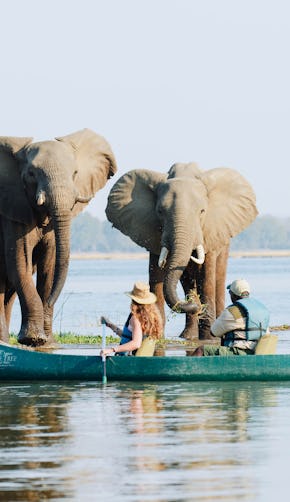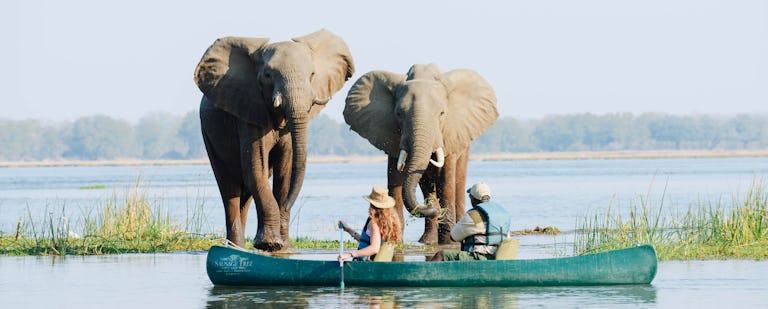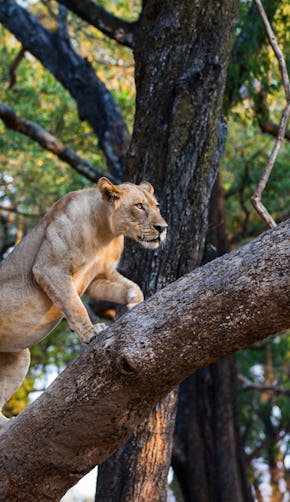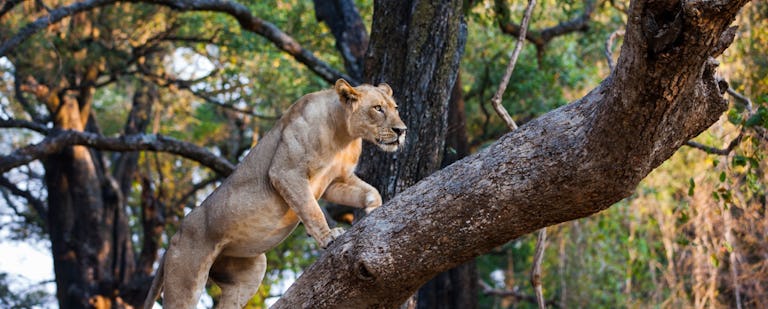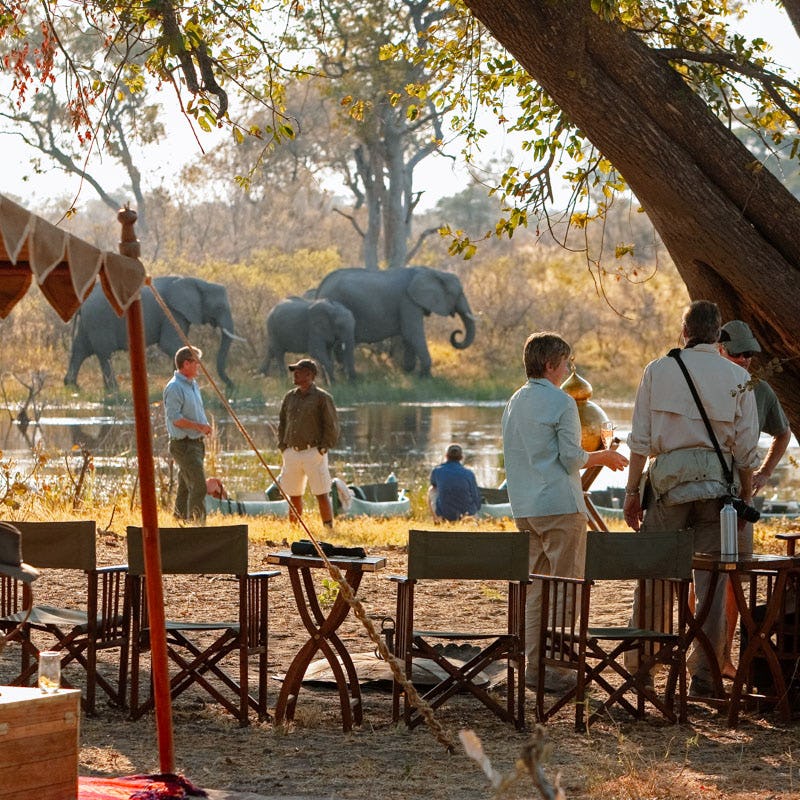I love game drives, but one of my main criticisms of bumbling through the bush searching for animals is the noise!
When you step onto a vehicle, there’s always lots going on. If it’s not the rumbling of the engine, then it’s the excited chatter of guests enjoying a sighting, or the voice of a guide explaining the animals’ behaviour.
There are times when I just want the car to stop, everyone to quieten down, and to just sit and listen to the bush… or hop out and walk!
Whilst it’s not the best idea to jump out of the vehicle unannounced, there are ways to ensure you can experience this important connection to the bush without risking your life—and that’s to take a guided walking safari.
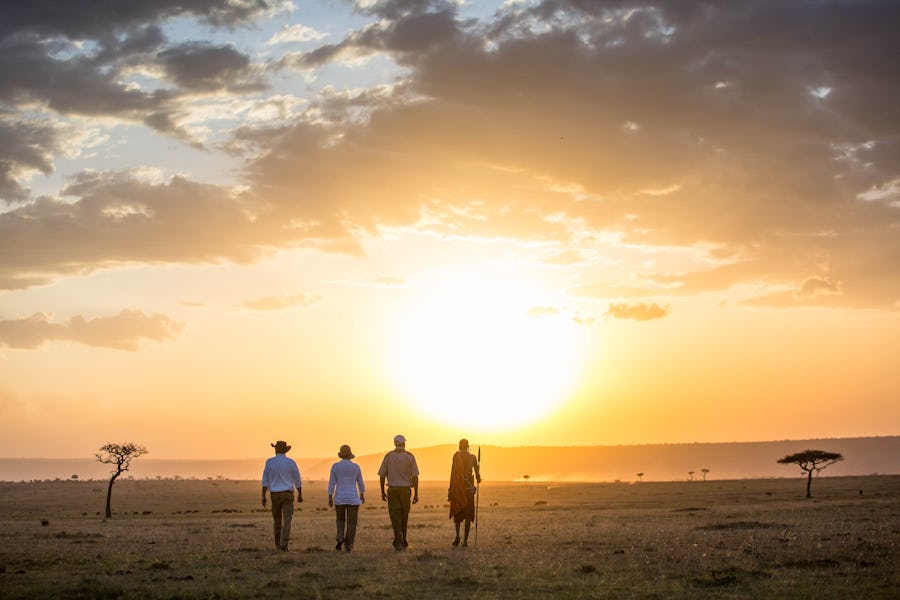
There’s just something about walking in the bush; it’s the slow and natural pace of a walk that connects you to the ground; it’s the sounds of the bush as you pause and listen; it’s the ability to stop at a moment’s notice and look at a footprint and decide what animal left it there and where it was heading.
Walking in the bush allows you to experience Africa at your own pace. In essence, it’s the most true and authentic way of moving, and appreciating animals. If you think about it: how long has our species been walking in nature? It’s our default mode of transport, we are perfectly evolved for it, and this is something that really comes across during a walking safari.
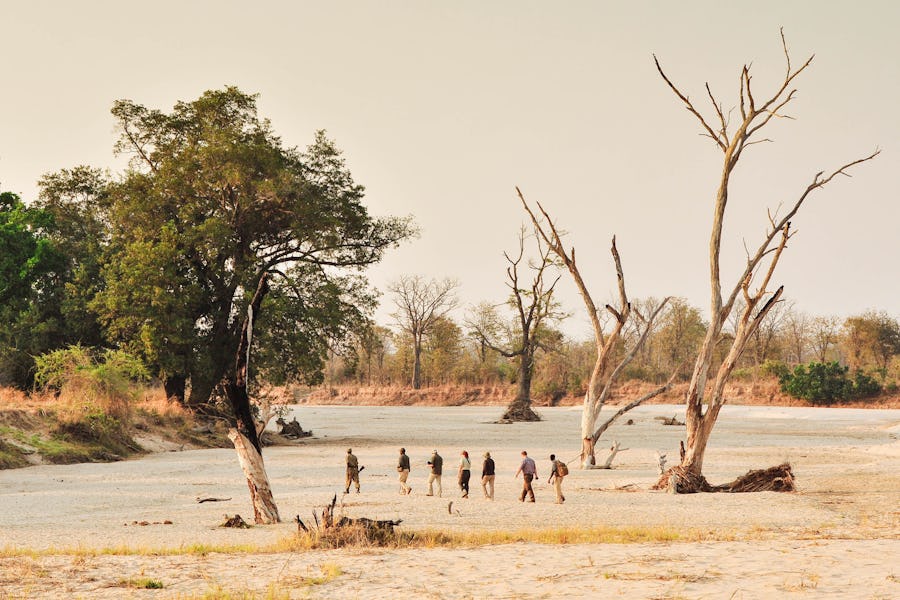
Multi-day safaris
Walking safaris can be conducted in various ways: short ones, medium ones, and monumental expeditions. The longer walking safaris usually involve heading into the bush for several days to see what you can find, an experienced guide by your side. Your luggage will be taken to the next camp ahead of you so it really is just you, your toothbrush and the natural world.
Two of the best places in Africa for these types of lengthy experiences are the Kafue and the South and North Luangwa national parks in Zambia. The pioneering company, Norman Carr Safaris (whose camps include Nsolo, Luwi and Kakuli), is in fact one of the longest running safari outfits on the continent. The walking safari in Zambia was somewhat born out of necessity: the Zambian bush enjoys some of the wildest terrain in Africa (there are very few roads for driving) and so the best and only way to explore it was on foot.
Today, there are numerous types of multi-day journeys on offer across the continent. As well as Zambia, Tarangire National Park and the Selous in Tanzania offer excellent walking expeditions, as does the beautiful Kruger National Park in South Africa. Operations here are perfectly set up with semi-permanent and movable camps that you can walk between and all are extremely safe: guides have to pass strict exams before they are qualified to lead a walking safari.
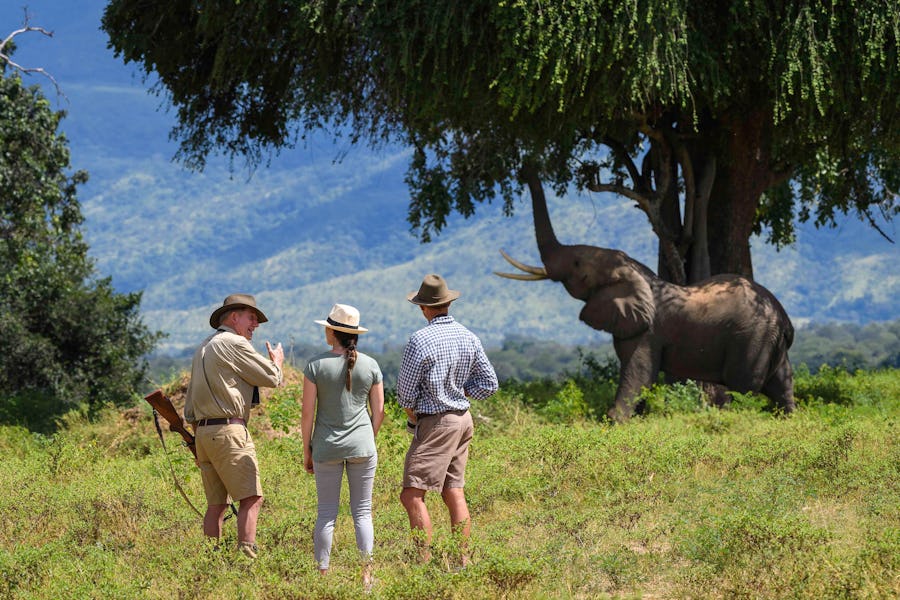
Something shorter
If you’ve had enough time in a Landrover, bumbling around looking for Africa’s big beasts, it might be time to spend a morning doing something quieter…
Most lodges in Southern and East Africa offer relaxed walking experiences that take anything from one to four hours. It’s even possible to venture out between drives to make sure you don’t miss anything.
Short walks are a wonderful option because they get you out of the lodge and help you experience another side of the wilderness that you won’t find on the busy vehicle. A short walk will have you on your knees examining the tracks of the animals you might have seen (or missed) on the road, and learning about ways to interpret and understand the ‘story’ of the bush.
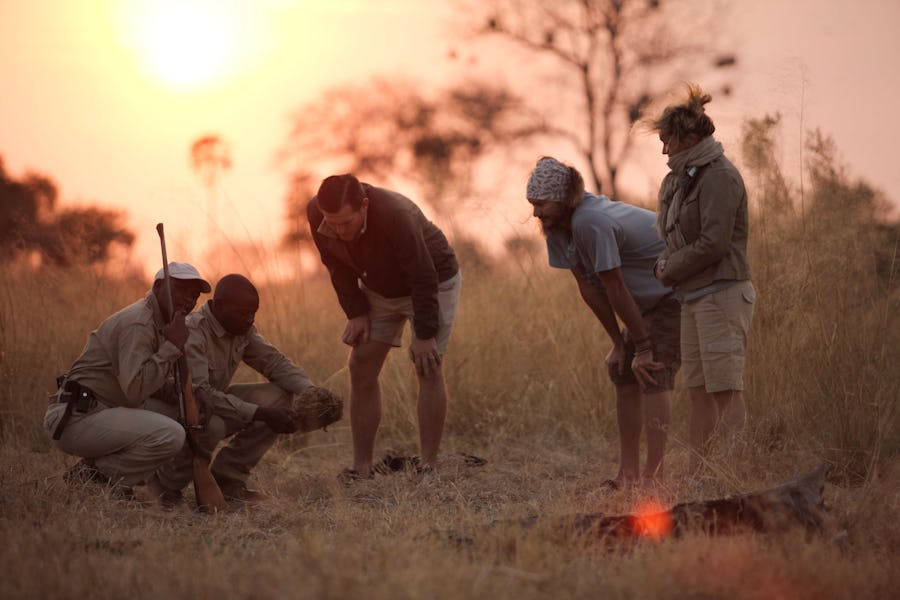
This is also a time to listen. One of the best things you can do on a bush walk is to stop, lean up against a tree or termite mound, close your eyes, and listen. You will be amazed at what you can hear, whether it’s the distant call of birds, the sounds of cicadas and crickets, the trumpet of an elephant, or just the peace of silence – true silence. This is what a walk allows.
Walking safaris truly are magical. It’s easy to find yourself inside all the time, even on safari, what with planes, luxurious bedrooms, restaurants and game drives to enjoy. It’s essential to step out of the comfort areas for at least a few hours and feel the buzz of the insects, or notice the slight raise of your heartbeat when there is a rustle in the bush. These are the ways that you step into your ancient psyche and connect; this is the magic of a walking safari.











